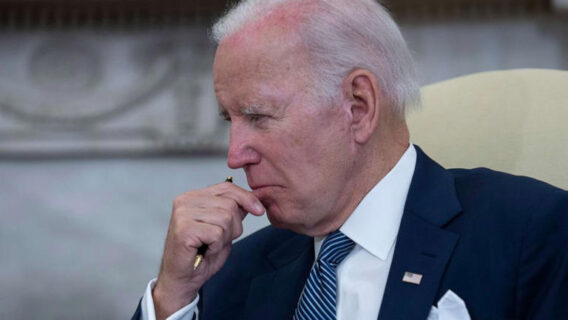
As Russia, Iran, Arab States Aid Quake-Hit Syria, U.S. Vows No Assad Talks
Newsweek/WHIA
As friends and foes of the United States pledged humanitarian efforts to help Damascus contend with a devastating earthquake that rocked Syria and neighboring Turkey, the U.S. has asserted that it would not engage with the government of Syrian President Bashar al-Assad.
Speaking at a press briefing Monday, State Department spokesperson Ned Price told reporters that “the U.S. is a partner to the people of Syria” and has “provided more humanitarian assistance to the people of Syria than any other country going forward.”
However, he said that “it would be quite ironic—if not even counterproductive—for us to reach out to a government that has brutalized its people over the course of a dozen years now—gassing them, slaughtering them, being responsible for much of the suffering that they have endured.”
“Instead,” Price added, “we have humanitarian partners on the ground who can provide the type of assistance in the aftermath of these tragic earthquakes.”
Contacted for additional comment, a State Department spokesperson further explained President Joe Biden’s position.
“The United States is the largest provider of humanitarian assistance throughout Syria, and we are moving quickly to provide targeted relief for survivors and the displaced after today’s devastating earthquake,” the spokesperson told Newsweek. “We are committed to providing immediate, life-saving humanitarian assistance to help all affected communities recover from this disaster.”
Washington cut ties with Damascus as its crackdown on protests in 2011 first devolved into a civil war that remains ongoing to this day. The Syrian government, led by Assad, has managed to retake much of the country from jihadis and rebels, including insurgents backed by the U.S. in earlier years of the conflict, but Washington has accused Assad of conducting war crimes, a charge he and his administration have denied, and has employed sanctions against the Syrian government.
The State Department spokesperson argued, however, that “our sanctions programs do not target humanitarian assistance” and “rather, as a general matter, our General Licenses permit activities in support of humanitarian assistance, including in regime-held areas. “
And yet, “no U.S.-funded humanitarian aid for the earthquake response is being provided through the Syrian regime, and we continue to demand that the regime – and all parties to the conflict – ensure unhindered humanitarian access to all parts of Syria,” according to the spokesperson.
“U.S.-government humanitarian partners implementing programs in Syria are required to possess robust risk mitigation mechanisms up front prior to funding,” the spokesperson added. “Our partners in regime-controlled areas directly deliver assistance to beneficiaries without control or direction from the Assad regime. This is to ensure that our assistance is not diverted by malign actors or the Assad regime and reaches the intended beneficiaries.”
The U.S. has instead worked with a Kurdish-led group known as the Syrian Democratic Forces, which lead an autonomous government in northeastern Syria, where U.S. troops continue to operate against Damascus’ wishes.
Reached for comment by Newsweek, U.S. Central Command spokesperson Army Colonel Joe Buccino said that “the thoughts and prayers of U.S. Central Command team are with the people of Turkey and Syria in this critical moment.”
“While we have not received a request for aid,” he added, “we are in dialogue with the leadership of our local partner forces in Syria and State Department officials.”
In a statement issued Monday, the Syrian Democratic Forces said its personnel “stand ready to provide immediate assistance to overcome the earthquake aftermath in all Syrian territories, including providing relief support and sending rescue teams to the disaster-stricken areas.”
Destruction caused by Monday’s earthquake, which originated in central Turkey, occurred in areas under the control of various factions. More than 700 people have been reported dead in government-held areas and around the same figure estimated in rebel-held areas near the Turkish border in the northwest, where millions of displaced people continue to live in dire conditions, including makeshift camps and residences.
“The devastating earthquakes bring a new level of suffering to the people of Syria and threaten a new humanitarian crisis exacerbated by a brutal winter and 12 years of war,” the State Department spokesperson said. “The situation was already fragile with 15 million people in need of humanitarian aid to meet basic needs.”
